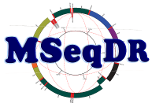Disease Browser
Parent Node: Neurobehavioral Manifestations (D019954) Parent Node: Psychomotor Disorders (D011596) ..Starting node Apraxias (D001072) Child Nodes:
........Alien Hand Syndrome (D055964) ........Alzheimer Disease, Familial, 3, with Spastic Paraparesis and Apraxia (C564330) ........Apraxia, Ideomotor (D020240) ........Early-onset ataxia with oculomotor apraxia and hypoalbuminemia (C538013) ........Gait Apraxia (D020235) ........Rolandic Epilepsy, Mental Retardation, And Speech Dyspraxia, Autosomal Dominant (C563392) ........Rolandic Epilepsy, Mental Retardation, and Speech Dyspraxia, X-Linked (C564467) ........Specific Language Impairment 4 (C567288) ........SPEECH-LANGUAGE DISORDER 1 (OMIM:602081) ........Wieacker syndrome (C536703) Sister Nodes: ..Apraxias (D001072) ..Bowen-Conradi syndrome (C537081) ..C SYNDROME (OMIM:211750) ..CHROMOSOME 3pter-p25 DELETION SYNDROME (OMIM:613792) ..De Hauwere Leroy Adriaenssens syndrome (C535991) ..Developmental Delay, Epilepsy, and Neonatal Diabetes (C565253) ..Diaminopentanuria (C565630) ..Dystonia, Dopa-Responsive, due to Sepiapterin Reductase Deficiency (C562657) ..Edinburgh Malformation Syndrome (C563051) ..Fumaric aciduria (C538191) ..Genitopatellar Syndrome (C565255) ..Growth Retardation, Small and Puffy Hands and Feet, and Eczema (C565528) ..Hypomyelination, Global Cerebral (C567847) ..Ichthyosis prematurity syndrome (C536271) ..Kozlowski Rafinski Klicharska syndrome (C537509) ..MacDermot Winter syndrome (C537714) ..Megarbane syndrome (C536145) ..Myelodysplasia, Immunodeficiency, Facial Dysmorphism, Short Stature, and Psychomotor Delay (C563345) ..Phosphoglycerate Dehydrogenase Deficiency (C566618) ..Phosphoserine Aminotransferase Deficiency (C567032) ..Polyhydramnios, Megalencephaly, And Symptomatic Epilepsy (C567020) ..Psychomotor Agitation (D011595) ..Trigonobrachycephaly, Bulbous Bifid Nose, Micrognathia, and Abnormalities of the Hands and Feet (C564759) UMLS . MedGen , OMIM , CTD
Term ID: 832 Name: Apraxias Definition: A group of cognitive disorders characterized by the inability to perform previously learned skills that cannot be attributed to deficits of motor or sensory function. The two major subtypes of this condition are ideomotor (see APRAXIA, IDEOMOTOR) and ideational apraxia, which refers to loss of the ability to mentally formulate the processes involved with performing an action. For example, dressing apraxia may result from an inability to mentally formulate the act of placing clothes on the body. Apraxias are generally associated with lesions of the dominant PARIETAL LOBE and supramarginal gyrus. (From Adams et al., Principles of Neurology, 6th ed, pp56-7) Alternative IDs: ParentIDs: MESH:D011596|MESH:D019954 TreeNumbers: C10.597.606.881.350 |C23.888.592.604.080 |C23.888.592.604.882.350 Synonyms: 1, Speech-Language Disorder |1s, Speech-Language Disorder |Apraxia |Apraxia, Articulatory |Apraxia, Developmental Verbal |Apraxia, Dressing |Apraxia, Facial Oral |Apraxia, Facial-Oral |Apraxia, Gestural |Apraxia, Ideational |Apraxia, Motor |Apraxia of Phonation |Apr Slim Mappings: Nervous system disease|Signs and symptoms Reference:
MedGen: D001072
MeSH: D001072 OMIM: Genes: Phenotypes Disease Causing ClinVar Variants




 Apraxias
Apraxias  10
10